SUMMARY
This is AI generated summarization, which may have errors. For context, always refer to the full article.
- Brutality of rebels problematic for West
WARNING: This video contains graphic scenes some viewers may find disturbing
As a US strike on Syria looms, a video of Syrian rebels executing soldiers raises fears American military action could strengthen Islamic extremists and criminals. The New York Times reports, the video of the men casually posing over their prisoners on the ground, reciting a poem about revenge and firing a bullet into the back of their heads highlights the “increasingly criminal environment populated by gangs of highwaymen, kidnappers and killers” in Syria. On Wednesday, Secretary of State John Kerry told Republican Representative Michael McCaul that there is a “real moderate opposition that exists” and estimates the extremists at around 15% to 20%. McCaul responded by saying he was told half of the opposition fighters were extremists. American officials are focusing on 2 groups with Al Qaeda ties: the Nusra Front and the Islamic State which have reportedly established a presence in Aleppo and Idlib Provinces. Analysts and diplomats say extremists are less focused on overthrowing President Bashar al-Assad than “establishing a zone of influence.” - World divided on Syria
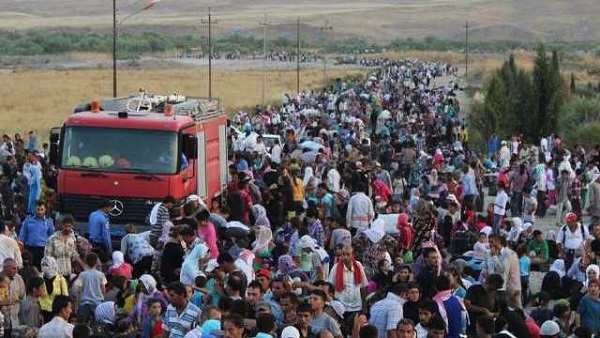
World powers remain divided over what to do with Syria as they fail to reach an agreement during the G20 summit in Russia. A diplomatic source tells AFP the leaders aired their positions on the Syria crisis over 3 hours in 10-minute speeches. Russia leads the opposition to US-led military action against Syrian President Bashar al-Assad over a chemical attack last month outside Damascus, which Washington says the regime initiated. EU president Herman van Rompuy says while the Damascus chemical attack was “a crime against humanity” there was “no military solution to the Syrian conflict.” The White House is pushing Congress to approve military strikes on Syria. On Thursday, it cleared its first hurdle when a Senate committee approves a plan allowing 90 days of limited military intervention in Syria. US ambassador to the United Nations Samantha Power says there is no way to seek Security Council approval for action against al-Assad because of Russia’s blocking. She also says Russia’s protection of Assad puts the whole Security Council system of handling international crises under strain. Power adds, “Even in the wake of the flagrant shattering of the international norm against chemical weapons use, Russia continues to hold the council hostage and shirk its international responsibilities.” Russian President Vladimir Putin says he would be ready to consider Security Council action if he could be convinced that Assad forces staged the August 21 attack. But Power said she does not believe Putin would budge from his position.
Read more on Rappler.
Read more on Russia and UN Council. - NSA foils internet encryption

Newly disclosed documents show the United States’ National Security Agency is winning its secret war on the Internet encryption protecting everyday communications. With supercomputers, court orders and other tactics, the NSA can circumvent encryption that protects banking data, trade secrets, emails and secret records. The New York Times reports it’s all done in stealth, after the agency lost a bid in the 1990s to insert a “back door” in all encryption. The report adds the NSA used custom-built computers to break codes and worked with technology companies in the United States and abroad — some of whom were reportedly coerced into building a back door or turning over master encryption keys. The documents disclosed by whistleblower and former NSA contractor Edward Snowden shows the NSA’s encryption successes are considered highly guarded secrets, known only to those cleared for a classified program known as Bullrun. The NSA says its activities are critical to ensure the United States’ protection from terrorists. But some experts say the NSA’s work to weaken communications security could work against US communications too.
Read more on NY Times. - Following Napoles’ trail
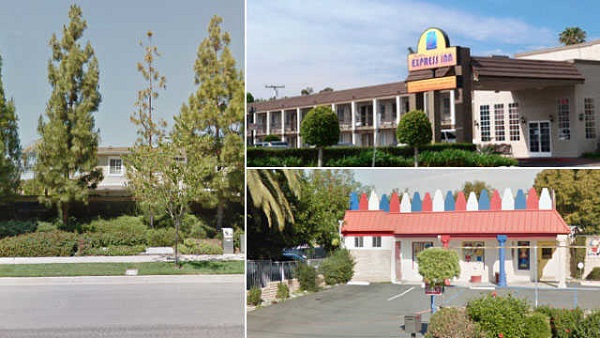
The complex layers of the pork barrel scam unravels — revealing the extensive involvement of lawmakers, government agencies, and alleged mastermind Janet Lim-Napoles. Former heads of the agriculture department’s subsidiary agencies face the Senate Thursday and admit their agencies released funds to dubious NGOs Napoles set up but failed to check the NGOs’ backgrounds and project implementation. They say the fund releases were approved based on endorsements from lawmakers. A former official also says Senators Bong Revilla, Juan Ponce Enrile and Jinggoy Estrada signed liquidation reports of NGOs linked to Napoles. In an interview with Rappler, Agrarian Reform Secretary Virgilio de los Reyes says the agency has been quietly doing its own probe on the P900 million from the Malampaya Fund that ended up with Napoles’ NGOs instead of beneficiary farmers. Meanwhile, the Bureau of Internal Revenue is assessing the filing of tax evasion charges against Napoles, but the agency admits her ownership of properties is not easy to prove. BIR chief Kim Henares says most of the 30 properties Napoles reportedly owns are under other people’s names. Rappler reported on 4 Napoles-linked properties in the United States, including an P80-million apartment in Los Angeles under the name of her daughter Jeane.
Read more on Rappler.
Read other Related Storie: Napoles DAR Connection and Senators PDAF - Investors’ reaction to the pork barrel scam?
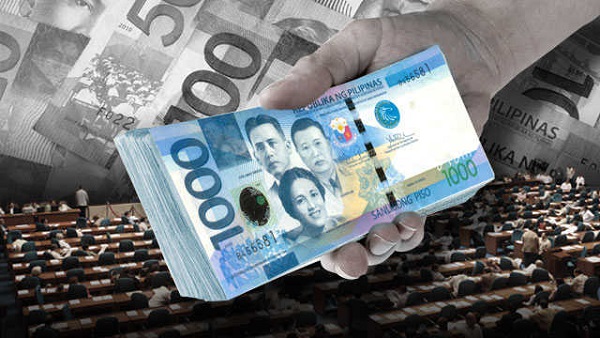
Two Philippine economists say it’s still early to show statistically the impact of the recent pork barrel scandal on investors’ sentiment in the country. UP School of Economics professor Cayetano Paderanga says the postponement of “difficult decisions,” such as raising electricity rates, may have more effect on the business community’s confidence in the government. But he says the business community is closely watching the Aquino administration’s move on calls to eliminate kickbacks from the pork barrel. He says, “If the government is acting decisively, the investors will come out with a better view.” National Competitiveness Council head Guillermo Luz says there’s a need to tighten the mechanism of release of the development funds and work for accountability and transparency. He also points out the pork scandal overshadowed 3 years’ worth of budget reforms. Reflecting growing confidence in the government’s fight against corruption in 2012, the latest global Corruption Perceptions Index places the Philippines at 105 out of 176 countries, the most improved in Asean from its rank as 129th among 183 countries in 2011.
Read more on Rappler. - Legally binding targets on climate change by 2015?
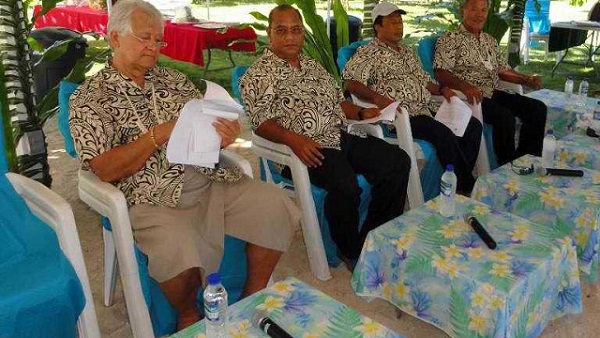
Pacific leaders sign a declaration committing themselves to urgent action on climate change. Members of the 15-nation Pacific Islands Forum finalize the Majuro Declaration, saying it should be a “game changer” in stalled efforts to address global warming. The declaration contains pledges on cutting greenhouse gas emissions and adopting renewable energy from each of the nations. Marshall Islands President Christopher Loeak says the goal is to create the political will for the world to adopt legally-binding climate change targets by 2015. On Friday, PIF leaders will meet with representatives of 13 countries, including major polluters China and the United States, and attempt to sign them up to the declaration. The PIF will then present it to United Nations Secretary General Ban Ki-moon to bolster efforts to forge a new climate agreement. European Union Climate Commissioner Connie Hedegaard says the Pacific nations were “setting a moral example” for the world.
Read more on Rappler. - Egypt Interior Minister survives car bomb
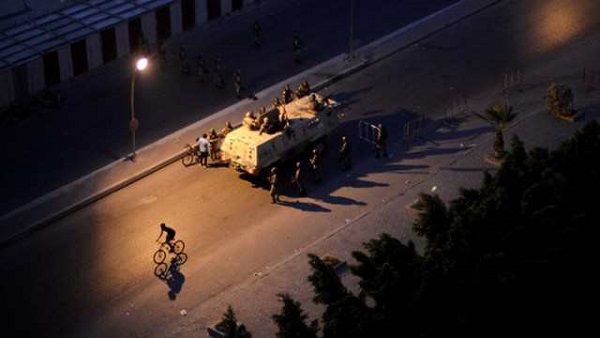
Egypt’s Interior Minister Mohamed Ibrahim survives an attack, after a car bomb strikes his convoy near his home in the Nasr City area Thursday. The bombing comes as security forces clamp down on supporters of ousted president Mohamed Morsi, sparking fears of a resurgence of Islamist militant attacks. The interior ministry says the blast was “possibly caused by a suicide bombing in which a powerful bomb was placed in the trunk of a car.” Ten policemen and 11 civilians were wounded in the attack. The presidency and the military condemn the attack, which they describe as “terrorism,” while the government says it will “strike with an iron fist those who threaten national security.” Ibrahim says he warned about such violence after the crackdown on Islamists who set up camps in Cairo to protest the army’s removal of Morsi on July 3. Hundreds of Islamists were killed in Cairo’s Rabaa al-Adawiya and Nahda squares when police stormed the protest camps on August 14.
Read more on Rappler. - Is China building structures in PH territory?
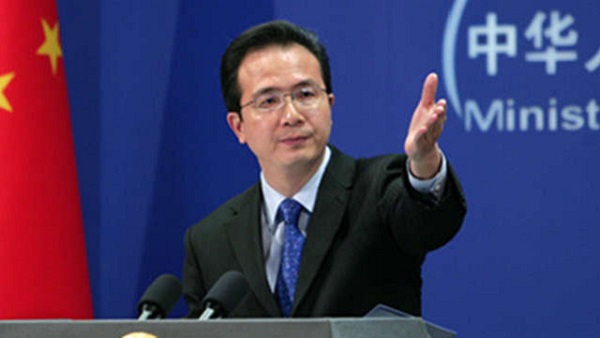
The Chinese Foreign Ministry denies it built concrete facilities in the disputed Panatag (Scarborough) Shoal after the Philippines released photos of concrete blocks allegedly installed by China. Spokesman Hong Lei also calls the shoal, which China calls Huangyan Island, part of “China’s inherent territory.” Philippine Foreign Secretary Albert del Rosario says the Philippines eyes using the reported installation of blocks in its case against China in an international tribunal hearing the claim over the West Philippine Sea (South China Sea). Del Rosario says the Philippines will also file a diplomatic protest over the installations. On Tuesday, Defense Secretary Voltaire Gazmin told lawmakers China has installed “concrete blocks” in Panatag. He described it as an obvious “prelude to construction.”Based on a second reconnaissance flight by the Philippine Navy, China has placed at least 75 concrete blocks in the disputed shoal off Zambales.
Read more on Rappler. - Protests against Miss World Pageant in Indonesia

More than 1,000 Islamic hardliners protest against the Miss World beauty contest in Indonesia ahead of its weekend opening, denouncing the pageant as “smut and pornography.” Opposition to the contest in the world’s most populous Muslim-majority nation intensifies in the past week, with demonstrators and some officials calling for the event to be scrapped. Organizers have already scrapped the bikini round, but it fails to appease hardliners, with Thursday’s protest the biggest yet. Some 800 men and women from the Hizbut Tahrir Indonesia hardline group march to the headquarters of MNC media group, which will broadcast the event and is the local organizer, brandishing banners that read “MNC: spreading smut and pornography” and “Miss World: pageant of deviation.” Despite growing opposition to the event, the organizers insist the event would be respectful to Indonesian culture. The Miss World contest begins Sunday on the resort island of Bali.
Read more on Rappler. - The complexity of love in a family
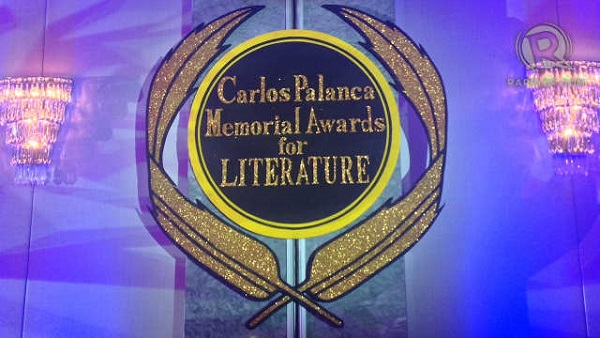
Rappler columnist and Palanca Award-winning writer Shakira Sison talks about her relationship with her father, the subject of her first prize-winning entry in the prestigious contest’s essay category. Titled “The Krakauer Table,” her essay paints a picture of the complexity of love in a family and the relationship between a demanding father and his daughters. In an interview with Rappler, Sison says, “I guess they [the judges] felt it was a sincere voice. If you read the essay it’s very heartwarming, but it’s not an entirely positive view of my father. I guess the judges sensed that kind of truth.” Sison is a prolific writer on LGBT issues and the Filipino diaspora. Her work has appeared in various publications in the Philippines.
Read her award-winning essay here:
Read the list of Palanca Awards Winners.
Watch Talk Thursday
Add a comment
How does this make you feel?
There are no comments yet. Add your comment to start the conversation.